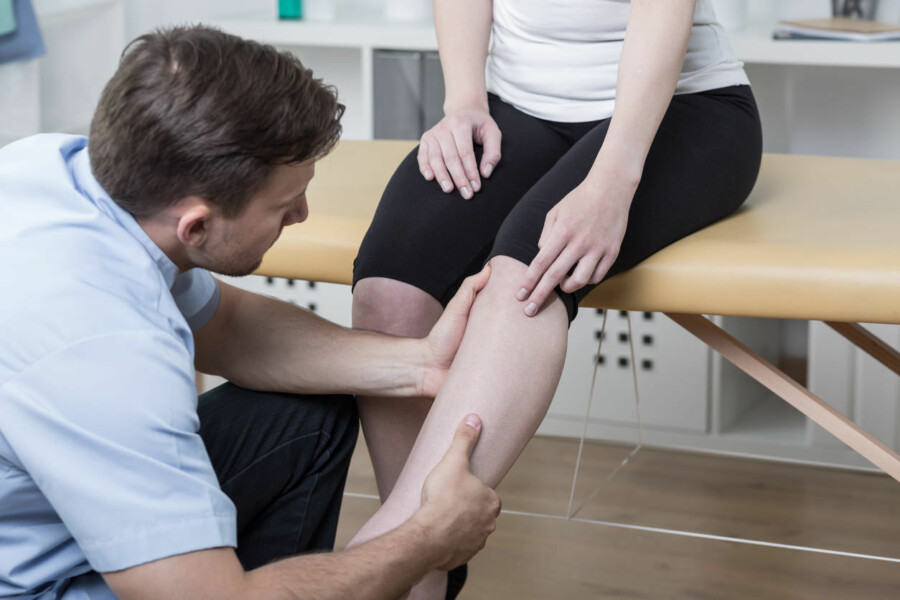Complications That Can Arise From Varicose Veins

Identifying and treating varicose veins early on won’t just prevent discomfort — it could also save your life.
When left untreated, symptoms of varicose veins typically include pain, fatigue, and swelling of the legs or feet; however, for some, other issues can arise that are more serious or even life threatening. While these instances are relatively rare, it’s still worth educating yourself about the potential complications and being proactive about treatment to mitigate risk. Here’s what you need to know.
What Are the Most Common Symptoms of Untreated Varicose Veins?
Because varicose veins are close to the surface of the skin, they bleed easily. A small nick or scrape (or even an abrasion from clothing) could result in a more serious cut that doesn’t heal easily. If this does happen, apply pressure to the area and seek medical attention as soon as possible.
Untreated varicose veins can also result in varicose eczema. This is a more superficial condition that cause your skin to become scaly, red, and flaky, sometimes forming blisters. While varicose eczema is chronic and unlikely to disappear permanently, it shouldn’t lead to any serious medical complications, and can be treated with moisturizers, topical ointments, or compression stockings.
Varicose veins can also lead to lipodermatosclerosis, a condition that causes discomfort. Skin near the calf area becomes tight and hard, often sensitive to touch or abrasion. The skin can also turn a brown or reddish color.
Blood that pools inside varicose veins is often depleted of oxygen and other essential nutrients. The tissue around the area can become swollen with red blood cells, causing painful swelling, inflammation, and discoloration of the skin. If left untreated for years, the skin and tissue can form ulcers, which are very painful and difficult to treat.
Can Untreated Varicose Veins Be Fatal?
Perhaps the most serious complication that can result from untreated varicose veins is a rare, potentially life-threatening condition known as deep vein thrombosis (DVT).
DVT is when a blood clot forms in the lower leg or thigh, which can result in a serious blockage of the veins and arteries. The condition is typically very painful and must be treated immediately, as it can be fatal if the clot reaches the lungs. DVT is often first reported as a “pulling” sensation in the leg or calf muscle. Other symptoms include swelling, redness, and warmth.
These groups run a higher-than-average risk of developing DVT:
People over 60 years of age
Women who are pregnant or who have recently given birth
People who have recently undergone surgery
People who have been paralyzed or immobilized for a long period of time
People with blood clotting disorders
People suffering from obesity
In the early stages of identifying DVT, you may be prescribed anticoagulant (anti-clotting) medication as a precautionary measure to reduce the likelihood of any blood clots traveling to the lungs.
Prevent Complications Now: Book An Appointment
If you suspect that you’re experiencing symptoms of DVT, or any other varicose vein-related complications, contact a vein specialist immediately. Your doctor will evaluate your symptoms and help you make the best possible decision for your specific condition. After all, when it comes to your vascular health, there’s no reason to take any chances.